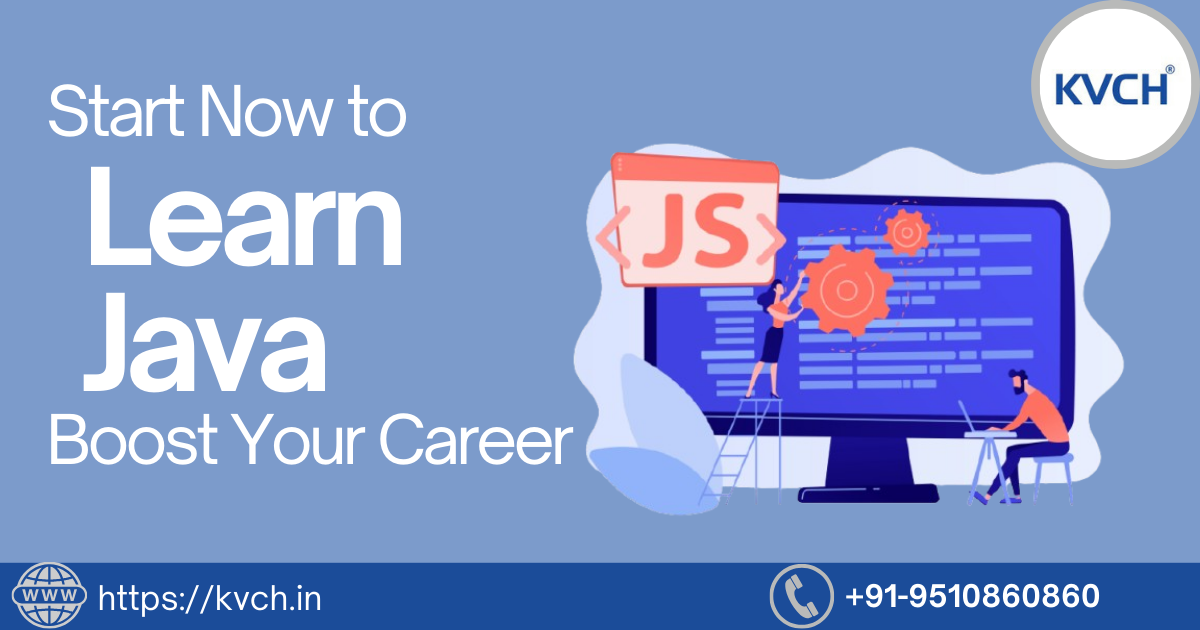
Programming is a skill that opens doors to countless opportunities in the tech world. Among the many programming languages available, Java stands out as a versatile, robust, and widely-used option. Whether you're a complete beginner or an intermediate coder looking to level up, enrolling in a Java course can be a game-changer for your career. In this blog, we'll explore how a structured Java course can transform your programming skills, taking you from a novice to a pro. We'll also touch on key aspects like Java course fees, Java certification courses, Java full stack courses, and top locations for learning, such as Java training in Noida and Java courses in Delhi.
Why Java? The Foundation of Modern Programming
Java has been a cornerstone of software development for over two decades. Its "write once, run anywhere" philosophy, object-oriented structure, and extensive libraries make it a favorite for building everything from mobile apps to enterprise-level systems. Companies like Google, Amazon, and Netflix rely on Java for their backend systems, proving its relevance in today’s tech landscape.
For beginners, Java’s syntax is approachable yet powerful, offering a solid foundation in programming concepts like variables, loops, and object-oriented programming (OOP). For seasoned coders, mastering Java unlocks opportunities in high-demand fields like web development, mobile app creation, and even artificial intelligence. A well-designed Java course bridges the gap between where you are and where you want to be, equipping you with practical skills and industry-standard knowledge.
The Journey Begins: What a Java Course Offers Beginners
If you’re new to coding, the idea of writing complex programs might feel overwhelming. A beginner-friendly Java course simplifies this process by breaking it down into manageable steps. Here’s how it transforms your skills:
- Understanding the Basics:
A good Java course starts with fundamentals—variables, data types, conditionals, and loops. These building blocks teach you how to think logically and solve problems systematically. - Hands-On Practice:
Theory alone won’t make you a programmer. Courses often include coding exercises, projects, and real-world examples to reinforce what you’ve learned. For instance, you might build a simple calculator or a basic game as your first project. - Introduction to OOP:
Java’s strength lies in its object-oriented approach. A course introduces you to classes, objects, inheritance, and polymorphism—concepts that are essential for writing scalable, efficient code. - Support and Guidance:
Whether it’s through instructors or a community, a Java course provides mentorship. This is especially valuable when you hit roadblocks, such as debugging errors or understanding complex topics.
By the end of a beginner-level Java certification course, you’ll have the confidence to write functional programs and a clear roadmap for further growth.
Scaling Up: Intermediate Skills Through a Java Course
Once you’ve grasped the basics, a Java course can elevate your skills to an intermediate level. This is where you start tackling more advanced topics and real-world applications:
- Mastering Data Structures and Algorithms:
Efficient code requires an understanding of arrays, linked lists, stacks, queues, and sorting algorithms. A quality Java course teaches you how to implement these in Java, preparing you for technical interviews and complex projects. - Working with Libraries and Frameworks:
Java’s ecosystem is vast. Courses often introduce you to tools like Java Collections Framework, JDBC (for database connectivity), and popular frameworks like Spring or Hibernate—skills that employers value highly. - Building Real Projects:
At this stage, you might create a small web application or a database-driven program. These projects simulate real-world tasks, giving you a taste of professional coding. - Problem-Solving Mindset:
Through coding challenges and assignments, you’ll sharpen your ability to break down problems and devise solutions—a hallmark of a skilled programmer.
For those in cities like Delhi or Noida, options like Java training in Noida or a Java course in Delhi offer localized, high-quality programs tailored to intermediate learners, often with affordable Java course fees.
Going Pro: The Power of a Java Full Stack Course
To truly become a pro, consider a Java full stack course. Full-stack development combines backend (server-side) and frontend (user-interface) skills, making you a versatile developer capable of handling entire projects. Here’s how it transforms you:
- Backend Mastery with Java:
You’ll dive deep into server-side programming using Java. This includes working with Spring Boot for building RESTful APIs, managing databases with MySQL or PostgreSQL, and ensuring secure, scalable applications. - Frontend Integration:
A full-stack course pairs Java with frontend technologies like HTML, CSS, JavaScript, and frameworks like Angular or React. You’ll learn to connect the backend and frontend seamlessly, creating fully functional web applications. - End-to-End Project Experience:
Imagine building an e-commerce platform or a social media app from scratch. A Java full stack course guides you through this process, teaching you architecture design, deployment, and optimization. - Industry-Ready Skills:
Full-stack developers are in high demand because they can handle multiple aspects of development. With a certification from a reputable Java certification course, you’ll stand out to employers.
By completing a full-stack program, you’ll transition from a coder to a professional developer, ready to tackle complex, real-world challenges.
Choosing the Right Java Course: Factors to Consider
With so many options available, how do you pick the right Java course? Here are some key factors:
- Curriculum:
Ensure the course covers essentials (core Java, OOP) and advanced topics (frameworks, full-stack development) based on your goals. - Practical Focus:
Look for courses with hands-on projects, coding exercises, and portfolio-worthy assignments. - Certification:
A Java certification course adds credibility to your resume, signaling to employers that you’ve mastered the language. - Location and Mode:
If you prefer in-person learning, consider Java training in Noida or a Java course in Delhi, both hubs for tech education. Online courses, however, offer flexibility and often lower Java course fees. - Cost:
Java course fees vary widely. Beginner courses might start at $50-$100 online, while full-stack programs or in-person training (e.g., in Noida or Delhi) can range from $300 to $1,000+, depending on the institute and duration. - Reviews and Reputation:
Research feedback from past students to ensure the course delivers on its promises.
The Transformation: Real-Life Benefits of a Java Course
So, how does a Java course tangibly improve your skills? Let’s break it down:
- From Confusion to Clarity:
Beginners often struggle with syntax or logic. A structured course provides clarity, turning abstract concepts into actionable knowledge. - From Hobby to Career:
Intermediate learners gain the tools to turn coding into a profession, whether through freelancing or a full-time job. - From Coder to Creator:
Advanced learners, especially those in Java full stack courses, evolve into creators who can build entire systems, not just snippets of code. - Boosted Confidence:
Completing projects and earning a certification (like from a Java certification course) instills a sense of achievement and readiness for the tech industry. - Job Opportunities:
Java developers are in demand globally. With skills honed through a course, you could land roles like Java Developer, Full Stack Engineer, or Software Architect, with salaries ranging from $60,000 to $120,000+ annually, depending on experience and location.
Where to Start: Java Training in Noida and Delhi
For those in India, Java training in Noida and Java courses in Delhi are excellent starting points. These cities are tech education hubs, offering a mix of online and offline programs. Institutes in Noida, like APTRON or Croma Campus, provide affordable, hands-on training with flexible schedules. In Delhi, centers like NIIT and Ducat offer comprehensive courses, including full-stack options, often with placement assistance. Java course fees in these regions are competitive, making them accessible to students and professionals alike.
Tips to Maximize Your Java Learning Journey
To get the most out of your Java course:
- Practice Daily:
Code every day, even if it’s just for 30 minutes. Use platforms like LeetCode or HackerRank to sharpen your skills. - Build Projects:
Apply what you learn to personal projects—a portfolio showcases your abilities to employers. - Join a Community:
Engage with fellow learners online or in-person (e.g., through Java training in Noida meetups) to exchange ideas and solutions. - Stay Updated:
Java evolves—keep an eye on updates like Java 17 or 21 to stay relevant. - Seek Feedback:
Share your code with mentors or peers to refine your approach.
Conclusion: Your Path to Pro Starts Here
A Java course is more than just a learning experience—it’s a transformation. From grasping the basics as a beginner to mastering full-stack development as a pro, the journey equips you with skills that are in demand worldwide. Whether you opt for Java training in Noida, a Java course in Delhi, or an online Java certification course, the key is to start and stay committed. With reasonable Java course fees and a wealth of resources, there’s no better time to dive in.
So, are you ready to turn your programming dreams into reality? Enroll in a Java course today and unlock your potential—one line of code at a time.
